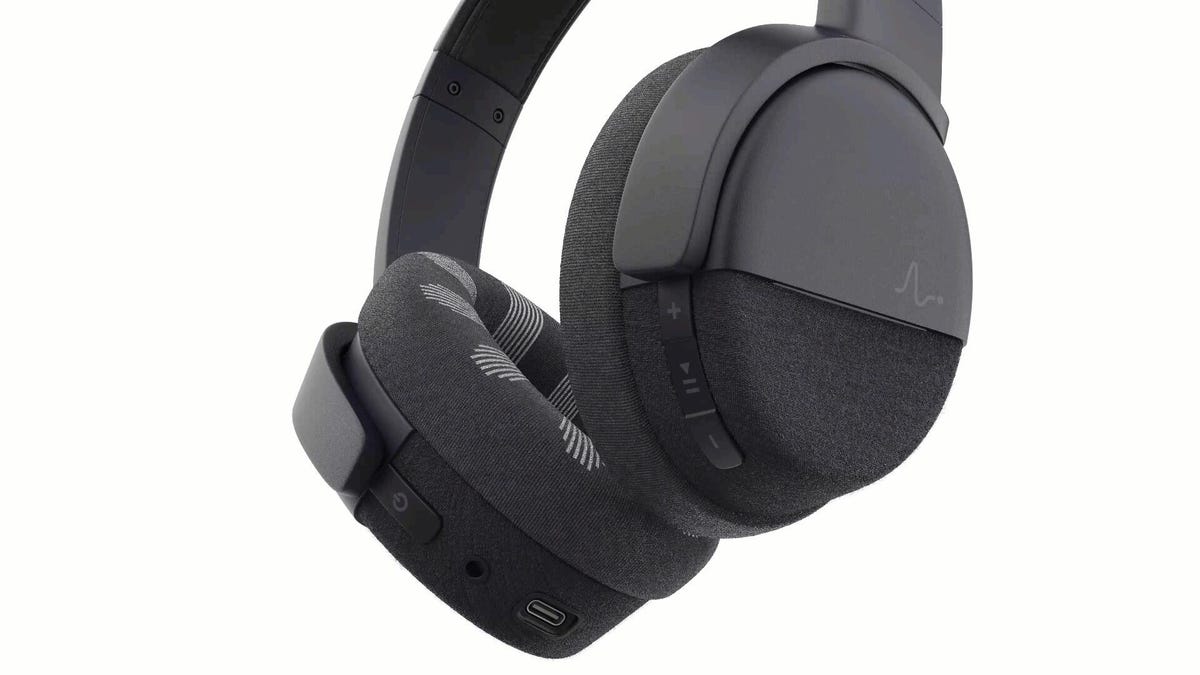An EEG-equipped set of headphones aims to monitor how well you focus
The Neurable Enten headphones have sensors in the ear cups that can measure brain waves while you listen to music.

They look like headphones, but they have an EEG sensor in the ear cups.
Despite a wave of neural input devices that promise to be on the horizon over the next couple of years, there aren't any everyday brain-sensing wearables out there right now that come to mind. The Neurable Enten, launching next year, aims to be a Fitbit of sorts for the EEG landscape... in headphone form.
Facebook is planning wrist-worn neural interfaces that measure the firing of motor neurons. Companies like NextMind are exploring head-worn devices that can measure, to some degree, where you're looking. Neurable's headphones and their passive measurement of focus sounds a bit more like the Muse meditation headband that was released a number of years ago.
Neurable, a neurotech startup, previously developed a brain-controlled VR game back in 2017. Its new tech doesn't tap into VR (or AR), but instead takes the relatively unassuming form of over-ear headphones. According to co-founder and neuroscientist Ramses Alcaide, who I spoke to over a Zoom call, the idea is to have a design that will stay on for a long time in order to get extended electroencephalography readings.
Neurable's app will interpret the data and show patterns of focus or distraction based on EEG patterns, and even recommend songs that could boost focus. The idea is to simply help show when a wearer might be more or less in a focused state of mind, and maybe use that awareness to choose music or work schedules accordingly. The headphones also have a noise-canceling feature, and some gesture-based music controls -- Neurable promises a wink or a head-nod could skip tracks and play or pause music.
Insights based on extended EEG data may not be here now, but over time (and enough EEG readings), maybe some future of extended brainwave insights could exist similar to how the accumulated machine learning of heart rate data has resulted in more advanced health metrics on fitness bands.
I haven't tried Neurable's headphones yet, and I have no idea how helpful they'd be even if they did what they promised perfectly. (Also, I don't know how good their audio quality is.) But the Neurable Enten headphones can apparently be used to listen to music or movies, or even plug into a VR headset via a 3.5mm jack, while the headphones pair with a phone to send the EEG data to the company's app (the headphones have Bluetooth 5.1).
According to Alcaide, it's possible for the sensors used in the Enten headphones to make their way into other forms next: the arms of smart glasses, or the sides of VR headsets. For now, though, he sees headphones as the best way to make something practical that has long enough battery life to be worn over extended periods -- these promise 12 hours of battery on a charge.
Would I wear these and discover if certain music was helping me focus? Would I be able to know if my sleep patterns were affecting things? Or if certain times of day were better for me? What about multiple monitors? I don't know, and at launch, these headphones seem like they mostly just show basic focus/nonfocus patterns of brain activity. But those types of insights over time seem like they'd be of interest... if not to individuals, then to researchers or companies.
The headphones aren't going to be available until April or May of next year, so who knows what they'll actually do until then. But as companies discuss possibilities of EEG and brain-computer interfaces in future devices, these headphones look like another possible way to add those sensors. Whether we want them in the first place remains to be seen.

